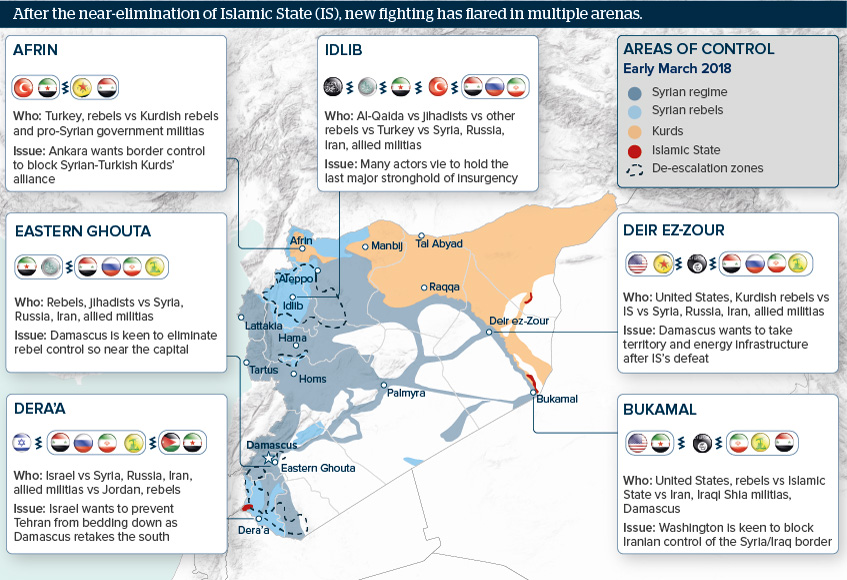Syria’s complex conflicts show states have the edge
A resurgent Damascus and increasingly committed foreign interventions are squeezing out non-state actors
Source: Institute for the Study of War; media reports, Oxford Analytica
Outlook
In almost every arena, rebel and jihadists will lose out to state actors. Air control gives Turkey the advantage in Afrin (unless Russia steps in), but the rebels in Eastern Ghouta can only delay the government’s inevitable advance.
Among state actors, however, Damascus, Moscow and Tehran have several advantages over Washington and Tel Aviv. A fundamental lack of US commitment will make it difficult to maintain interest in Deir ez-Zour or Bukamal, or the loyalty of its local proxies -- while Syria and its allies may have more patience. Israel is deeply committed to excluding Iran from southern Syria, but the incremental and deniable incursions could present a challenge.
Impacts
- Washington is likely to prevent Turkey from extending the Afrin battle to Manbij.
- Large-scale reconstruction is unlikely, with EU funding withheld over human rights issues.
- Long-term fighting in Idlib will hurt the civilian population and allow new space for jihadists.
- Jordan will prioritise economic ties with Syria over former rebel alliances.
See also
- Damascus has further plans after taking Ghouta - Mar 21, 2018
- Syria faces a Russian-Iranian-Turkish carve-up - Mar 16, 2018
- US policy on Turkey’s Syrian Kurdish assault may shift - Mar 14, 2018
- US policy in Syria may prove paradoxical - Feb 8, 2018
- More graphic analysis
